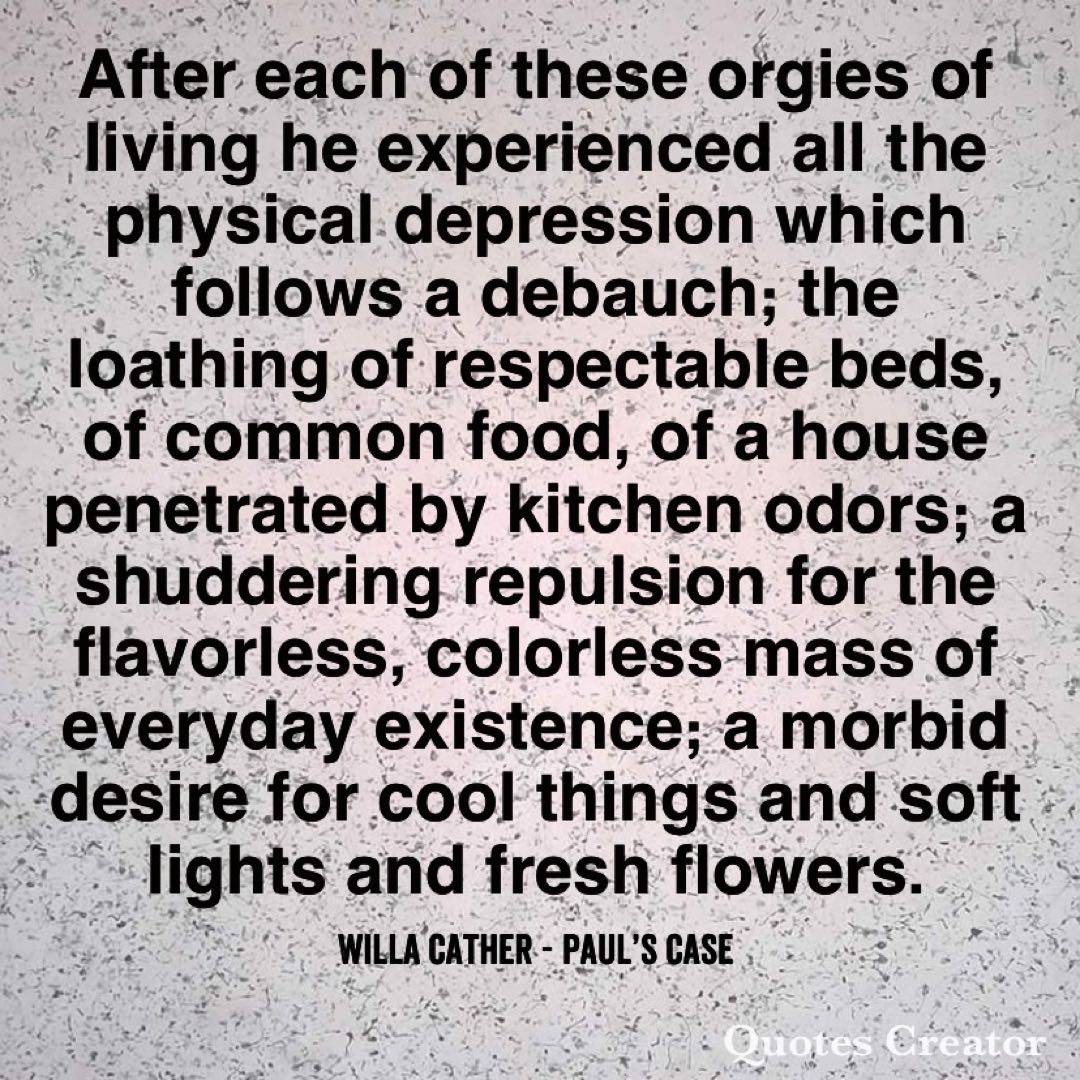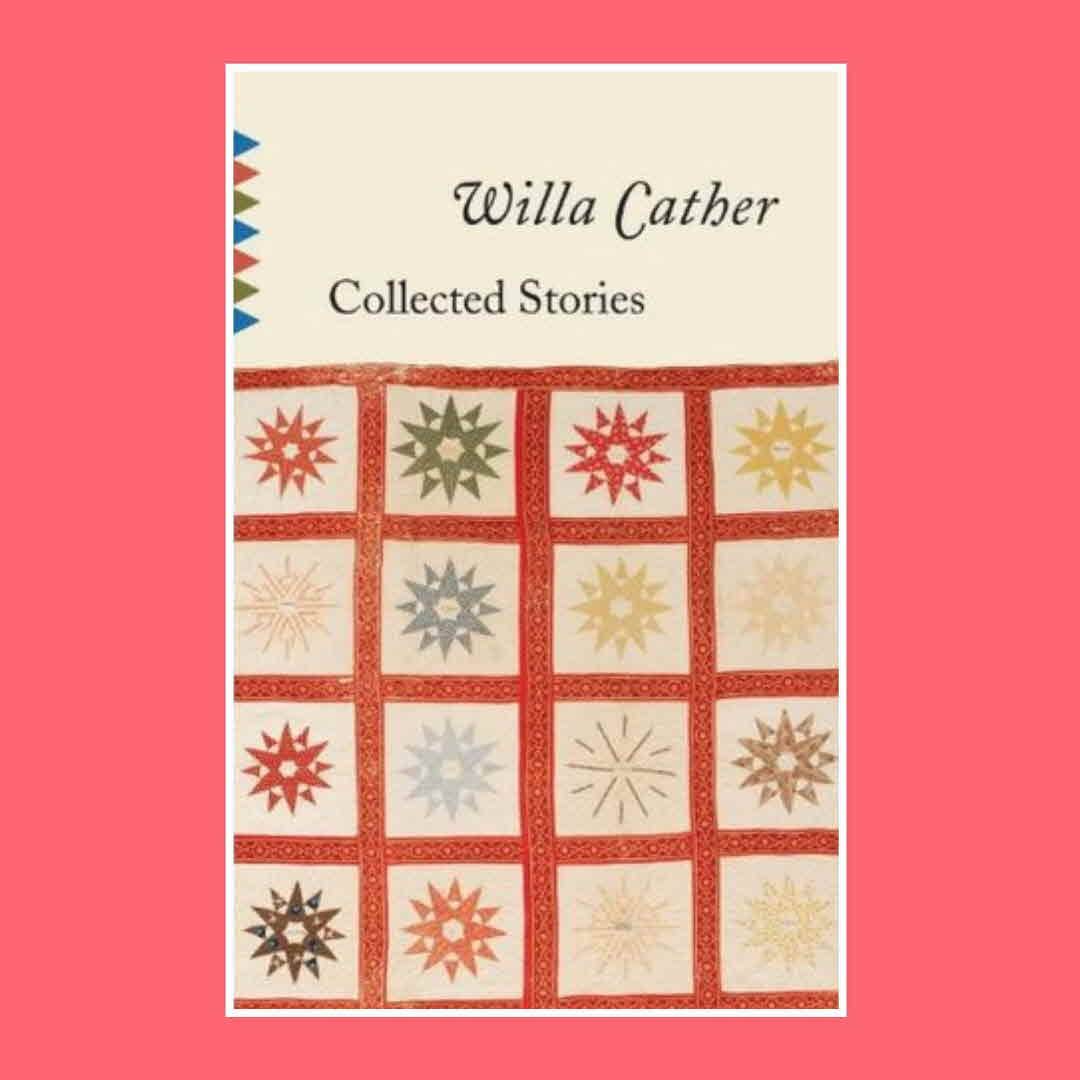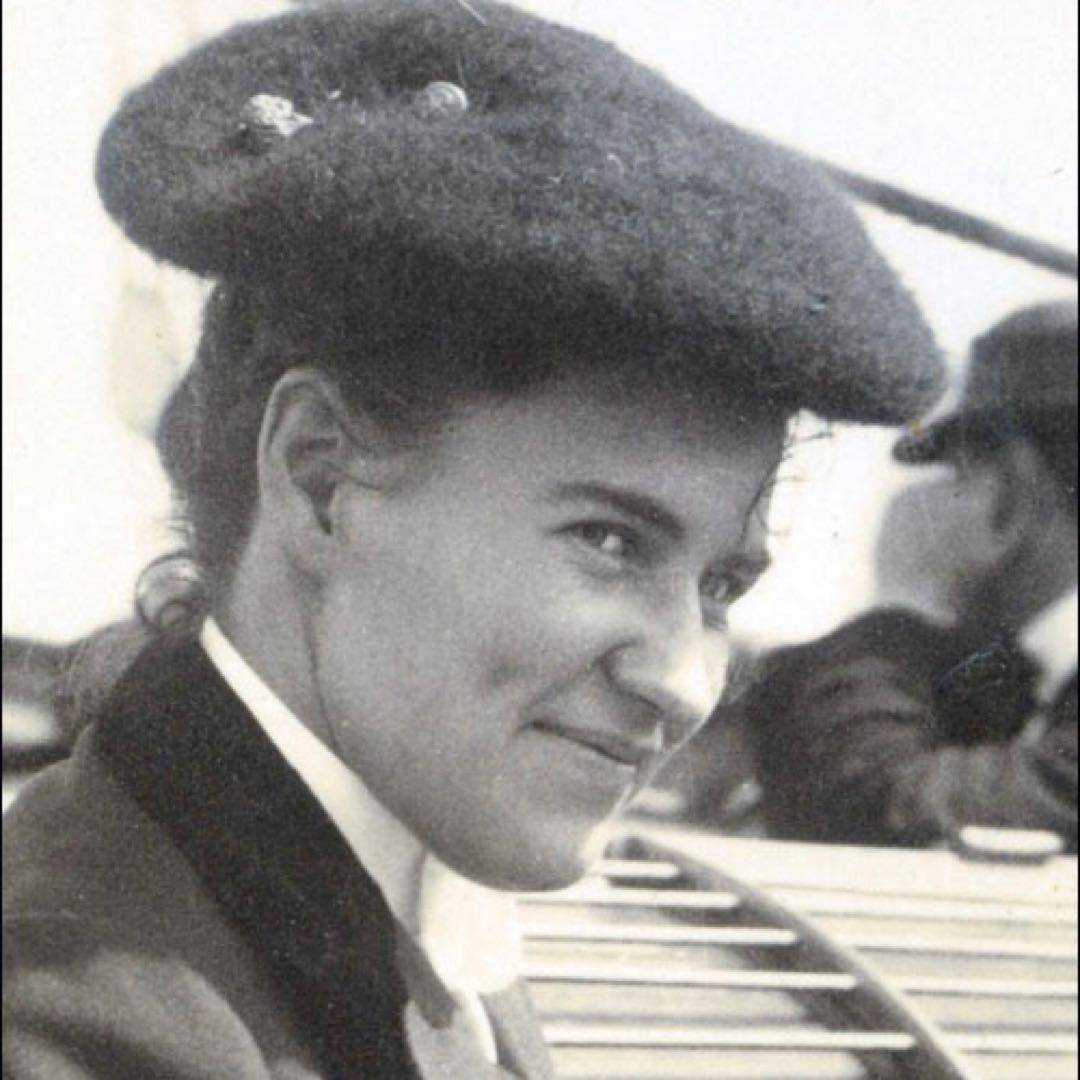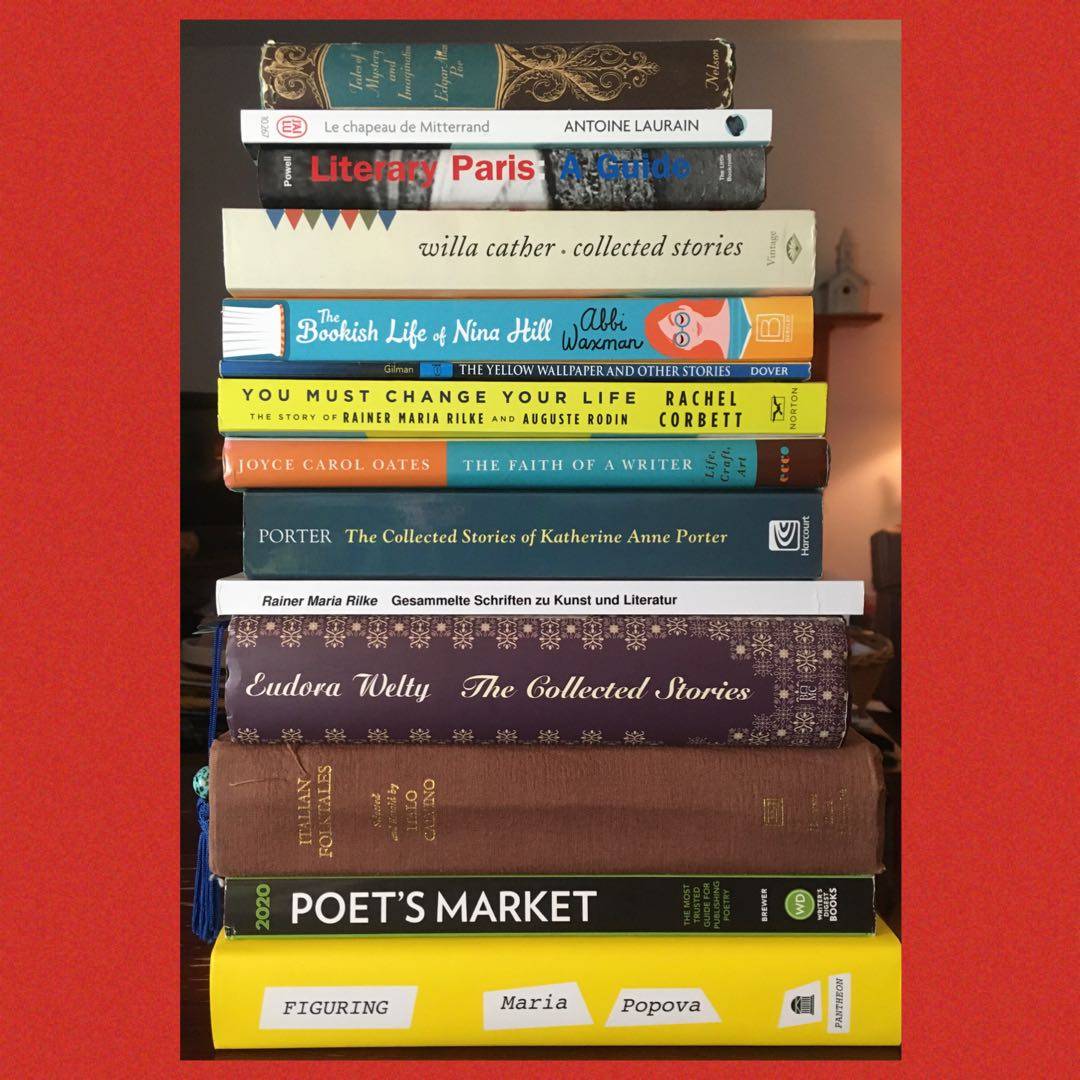
#everyday #quotsyjun21 @TK-421

This collection has its high & not-so-high points, as complete story collections often do. Though reading it as part of the #catherbuddyread was fascinating, delving into it as we did after Cather's brilliant novels, in that it crystallises most of her prevalent themes: art vs commerce, freedom in spirit & mind, the sense of communion with nature & the universe that transcends day-to-day banalities, sensitive characters ill-adjusted to the world.

We learned a great deal about WC these last 3 months with these 19 stories and an essay. She was a dynamic author who reveals here much more complexity than her novels indicate. Beginning in a Henry James‘s style, she quickly cultivated her own voice, tying to various experiences in her life and imagination. I liked her novels better, but I love what this collection reveals. So, 5 ⭐️s. Thank you so much to our wonderful #catherbuddyread

The papal palace at Avignon reminds me of the cliff dwellings. Hmm. If, like me, you were expecting the surviving fragments you can read them here: https://www.willacather.org/system/files/idxdocs/willa_cather_nr_fall2011_vol_55... There‘s also explication, so if you just want the fragments scroll down to p 3. My reaction to Kates‘ work wasn‘t as violent as Chris Wolak‘s. How about yours? #catherbuddyread

Enchanted Bluff and Tom Outland‘s Story. Both concerned with cliff dwellers and the white man‘s reaction to them. Tom is a reread for those who have been with us from the beginning, but in rereading our comments about it from The Professor‘s House I found we didn‘t focus on Tom, so maybe some new perspectives here. As always @chris.wolak gave us lots to think about in her blog posts. Like the double meaning of “bluff” in the first story.

This week we look at the two last stories Cather completed.
#catherbuddyread
The Best Years, written for her brother in 1945, looks at Evangeline Knightly‘s experiences with a bright teenage teacher in rural Nebraska. Before Breakfast (1944) covers Henry Grenfell‘s emotional swings alone on Grand Manan Island, Nova Scotia
This completes The Old Beauty and Others. Next - one week off then @Lcsmcat leads the selection from Five Stories (1956)

The Old Beauty (1948)
#catherbuddyread.
A story of friendship and of an era, a nice story, that can get lost in the story around it.
Finally, a story about a lesbian relationship (albeit subtle), but one that Cather not only never submitted, but didn‘t save. A friend preserved it. It has parallels to Cather‘s life with Edith Lewis (pictured). The death in the story and posthumous publication seem to emphasize the life parallels.
Thoughts?

Old Mrs. Harris and Two Friends are our stories today for the #catherbuddyread The first was originally titled “Three Women” and is said to be “extremely biographical.” Above are Cather (left) and her mother (right) from the National Willa Cather Center online. I couldn‘t find an image of her maternal grandmother.
Does the story “work” better for you with one title or the other?

Neighbor Rosicky from Obscure Destinies March 13th #catherbuddyread
Anton Rosicky was based on the real life John Pavelka, husband of Annie Pavelka, who was Cather‘s inspiration for Antonia of My Antonia.(Photos are their farmhouse and the church in Red Cloud, MN where they married.) Did he seem familiar to you?

1. Yes. Currently reading the tagged with the #catherbuddyread
2. Yes, my current “real life” book club is using virtual meetings due to the pandemic.
#Two4Tuesday @TheSpineView
If you want to play, consider yourself tagged.

Feb 27 stories #catherbuddyread
The Sculptor's Funeral
“A Death in the Desert”
(This Finishes Youth and the Bright Medusa)
Two stories on death. Harvey Merrick‘s body comes home to the town he escaped. Katherine Gaylord, dying from TB, is comforted by the brother of her musical hero. Cather‘s own grave marker is pictured, in Jaffrey, NH.
Next: one week off, then @Lcsmcat leads Obscure Destinies (1932) - March 13 - Neighbour Rosicky

Catching up on the #CatherBuddyRead this afternoon. I‘ve fallen a bit behind, so I‘m getting a jump start on this week‘s section and then playing catch up with previous sections. Every time I read Cather, I‘m quickly reminded why I adore her. She‘s brilliant with describing the beauty of nature in particular the American frontier and developing sketches of human lives and why we think, do and pursue.

“One lost the contour of faces and figures, indeed any effect of line whatever...”
Feb 20 stories #catherbuddyread
Scandal
Paul's Case
A Wagner Matinée
In brief: Kitty‘s social criticism, Paul‘s tragedy, and then a touch of impressionism. Music is everywhere offering something, some unspecified thing, to uncomfortable real life. I‘ll add more in the comments. Thoughts?
Next week, Feb 27
The Sculptor's Funeral
“A Death in the Desert”

“For nearly two months [Kitty Ayrshire] had been deprived of everything she liked, even of the people she liked, and had been shut up until she had come to hate the glass windows between her and the world “
Well this is starting out to be relevant! #catherbuddyread

Feb 13 stories #catherbuddyread
The Diamond Mine
A Gold Slipper
From: Youth and the Bright Medusa, 1920
Cather loves her singers. Cressida Garnet might catch our imagination with that opening paragraph, her self promotion, four husbands, or even just her name (an echo of the title). Kitty Ayrshire meanwhile lacked a fb page to rant about anti-art stereotypes, so she found a semi-human to rant to. 👇👇

You can find the illustrations from Gardner Soper for The Diamond Mine here: https://cather.unl.edu/writings/shortfiction/ss010. And also, the final quatrain in English for those of us who don‘t speak German. #catherbuddyread

#catherbuddyread
Coming, Aphrodite
From: Youth and the Bright Medusa, 1920
A brief relationship of contrasts in NY between a brooding serious but cautious orphan artist and a fearless small town girl far away from home, set to make the world do her will.
I thought Cather made this a terrific story. Was there a touch of Checkhov? Did not expect her to have a peep hole story. !!
How did you like this?
Next week:
The Diamond Mine
A Gold Slipper

#catherbuddyread - Coming, Aphrodite - Feb 6
See you Saturday.

Cather‘s collected stories - week 1
#catherbuddyread
From: The Troll Garden (1905)
- Flavia and Her Artists
- The Garden Lodge
- The Marriage of Phaedra (pictured)
Next: Coming, Aphrodite
Flavia is exposed. Caroline losses something. Ellen wants to move on. There is a lot here and I‘m a little at a loss on how to go about this. But what are your thoughts on each and overall? Surprised? What is Cather saying... about women? Where‘s the prairie?

I confess that I almost didn‘t share this, so I could seem so much more insightful than I am 😂 but I like y‘all too much for that. I found a blog that read the Cather short stories from our collection, one a month starting in 2019 (so they‘re all there.) some intriguing ideas about the first three stories that we‘re discussing tomorrow. Link in comments. @Graywacke #catherbuddyread

Alright #catherbuddyread, I‘m getting started...
Discussion Saturday
- Flavia and Her Artists
- The Garden Lodge
- The Marriage of Phaedra

I started this collection for the #catherbuddyread today, and can‘t resist posting this quote. Can‘t wait to discuss Flavia with you all! @Graywacke

I‘ve got my copy all set up for the next #catherbuddyread!

Just a reminder that we‘re about two weeks from our next Cather discussion
Jan 30 discussion of stories from The Troll Garden (1905)
- Flavia and Her Artists
- The Garden Lodge
- The Marriage of Phaedra
#catherbuddyread

#catherbuddyread 2021
We have a schedule for the Willa Cather‘s collected stories! (Woot! 🍾... Was not so simple 😳) Details are in the comments, but note that this collection covers 5 books of stories. Thanks @Lcsmcat for helping. We‘re a small group, but open to anyone who wants to join. Please feel welcome.
1st discussion: Jan 30, three stories from The Troll Garden (1905)
Flavia and Her Artists
The Garden Lodge
The Marriage of Phaedra

Look what arrived in today‘s mail! #bookmail I‘m ready for the next installment of #catherbuddyread!

Christmas #bookhaul of 2019! Heartfelt thanks to my Litsy pen pals @robinb and @Chelleo for your contributions to this wonderful tower of reading material! Your thoughtfulness is deeply appreciated! My packages to you both will arrive in the New Year, as I‘m behind with my “Literary Santa to-do list”! Wishing everyone many pleasant hours of reading in 2020! 🎄📚🎄📚🎄📚